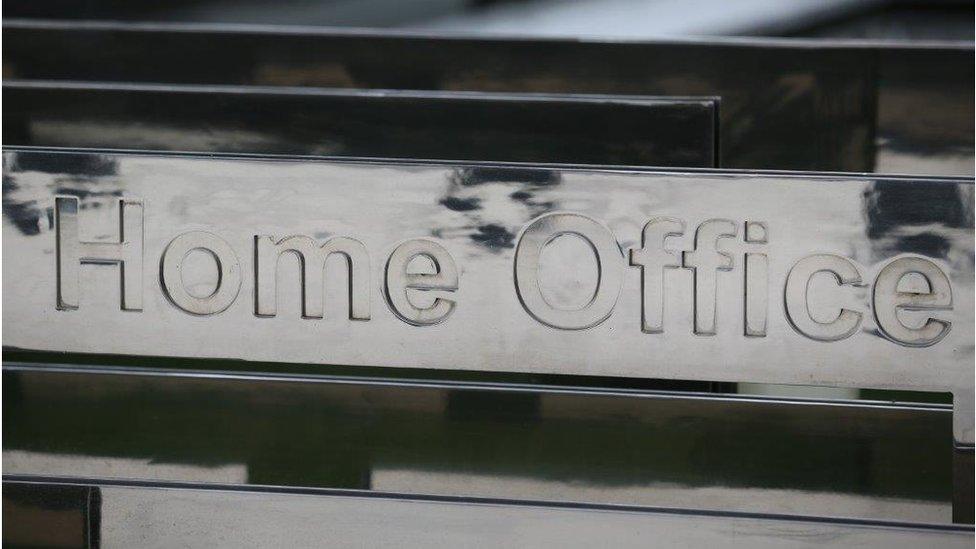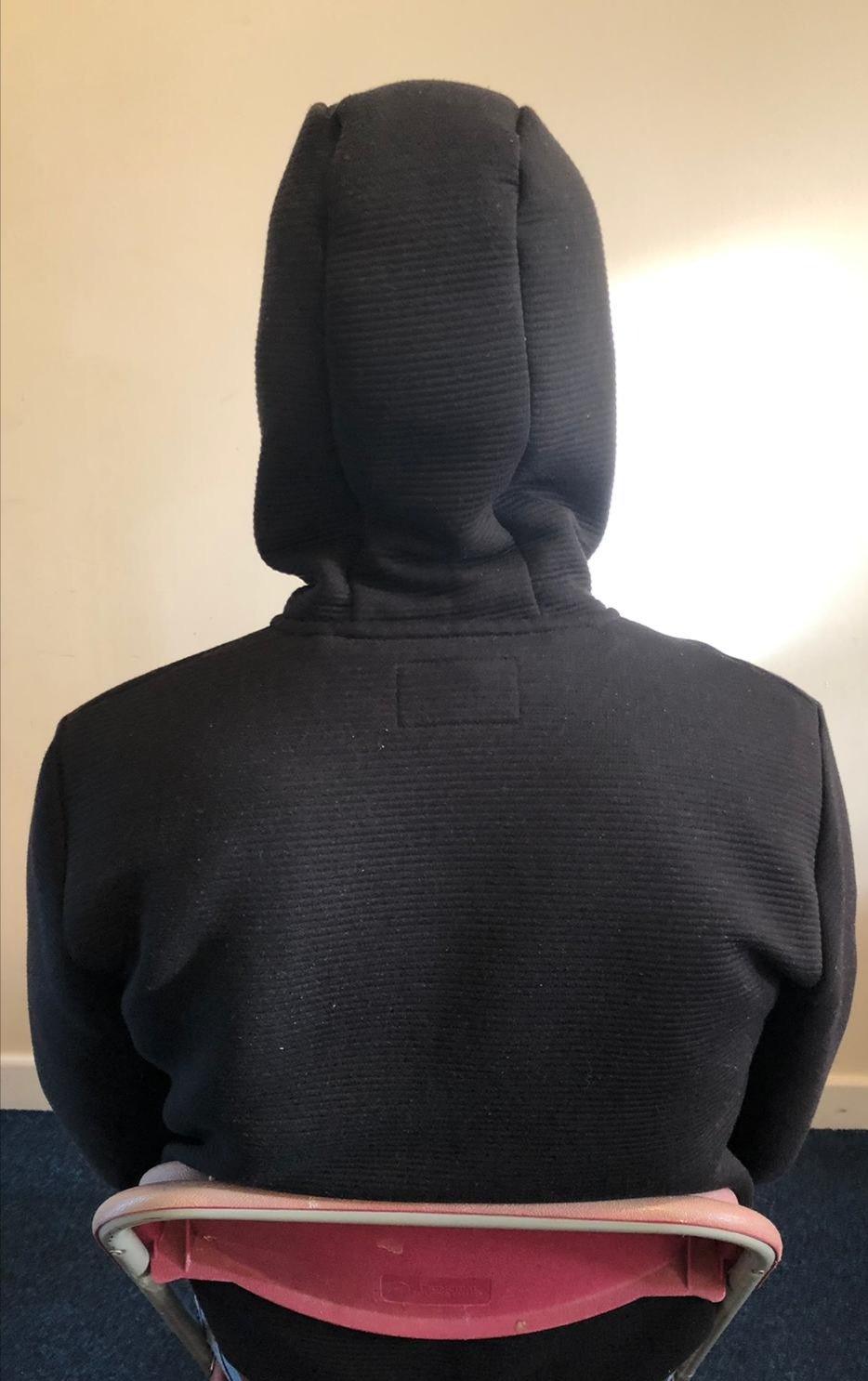Lockdown asylum freeze puts Iraqi doctor 'in limbo'
- Published

The UK's asylum system has become mired in delay during the lockdown, with tens of thousands of people still waiting for their cases to be determined. Among them is "Karim", an Iraqi doctor who wants to use his skills to help the NHS fight the virus.
Karim, not his real name, was a doctor working in a hospital in Iraq in 2019 when a group of militiamen entered with a dying patient on a trolley.
They demanded to see a doctor and Karim claims he was with the patient in moments, doing his best to save his life, but the man died and the militia blamed Karim.
Karim says he was not the first doctor to be targeted - and it was what happened to the others that meant he had to flee.
"I think my fate will be death, because this is what had happened to one of our consultants in the hospital a few months before I fled the country.
"They followed him for about six months and then they shot him over the whole of his body. I had no choice but to flee," he told the BBC.
Karim says another consultant was told by a militia member that he would be killed if he did not pay them $20,000 after he had treated a pregnant mother whose child was born with a congenital abnormality.
'Efforts refused'
Karim and his wife, who is also a doctor, flew to the UK last November, claiming asylum when they arrived.
Just over a year later, their application has no end in sight.
"We don't have any exact date which tells us that at least we will be interviewed or we will have a decision by this time, nothing like this," says Karim.
"Me and my wife tried our best by contacting the Home Office to get an exemption to support the NHS as doctors during this pandemic, and all our efforts were refused.
"I also offered to volunteer as a doctor but the NHS will not allow you to do any work inside their hospitals if you don't have permission to work."

Karim wants to remain anonymous, fearful of attack, even now he is in the UK
As a result of the Covid-19 pandemic, the Home Office cancelled asylum interviews on 19 March.
Guidance published on 6 August stated there would be a phased resumption of interviews using video conferencing.
Some face-to-face interviews have now resumed.
However, figures published this week show a rise in the number of asylum seekers waiting for more than six months for their case to be determined, external.
They show:
in September 2019, 37,450 people were awaiting an asylum decision, of these 20,054 or 54% had waited more than six months
but by September 2020 there were 50,179 awaiting a decision and 36,093 or 72% waiting more than six months
That represents a rise of more than 16,000 people.
'Justice denied'
"More than 36,000 asylum seekers, many of whom are traumatised and vulnerable, have waited longer than six months for a Home Office decision that is pivotal for their future, their family and their security. This is unacceptable," Law Society President David Greene told the BBC.
"Asylum seekers are living in limbo, unable to earn a living, contribute to the economy or, as in Karim's case, support the NHS.
"We need an immigration and asylum system that treats people fairly, that is efficient and provides timely, lawful decisions.
"Justice delayed is justice denied."

How asylum works
Anyone wishing to stay in the UK as a refugee must apply for asylum.
To be eligible you must have left your country and be unable to go back because you fear persecution.
Applications should be made on arrival in the UK or as soon as it is thought it would be unsafe to return to your own country.
After you apply, you will have a meeting with an immigration officer, a process known as screening.
There will then be an asylum interview with a caseworker which will determine your asylum status. If successful you may be given permission to stay in the UK for five years. This is known as "leave to remain".

'Broken system'
In May 2019 the government scrapped its target of processing most asylum claims within six months but said it was committed to ensuring claims were considered without unnecessary delay "to ensure individuals who need protection are granted asylum as soon as possible and can start to integrate and rebuild their lives, including those granted at appeal".
Home Secretary Priti Patel told the BBC the need for change in the UK's asylum system had never been clearer.
"With over 48,000 asylum cases stuck in this broken system, I will bring forward new legislation next year to ensure vulnerable people get the support they need instead of being stuck in the system waiting for a decision and unable to get on with rebuilding their lives.
"This also means ending abuse of the asylum system. Our new legislation will introduce a new firm system to expedite removals of foreign criminals, stop people coming here illegally and instead prioritise those most in need who play by the rules."